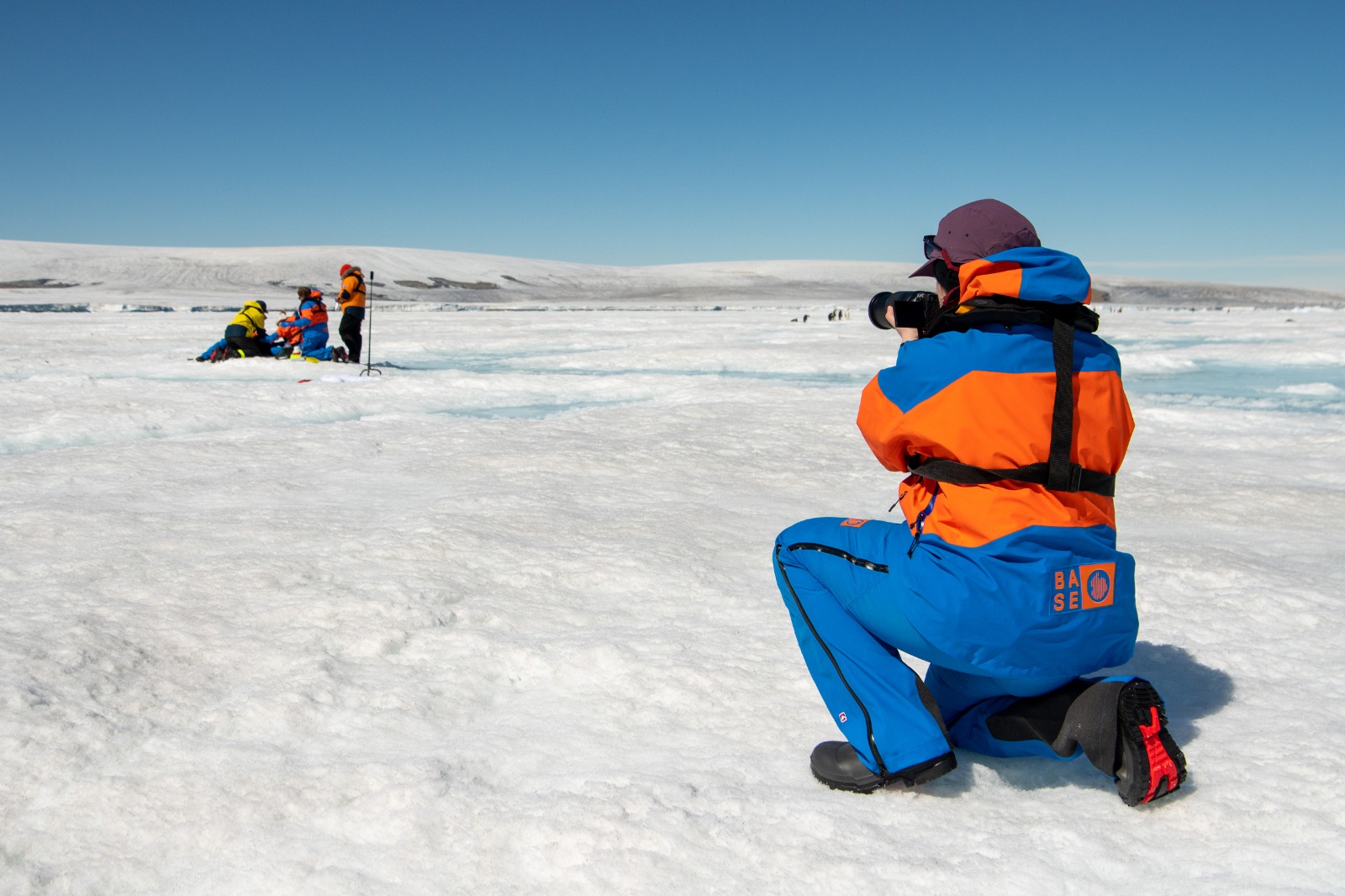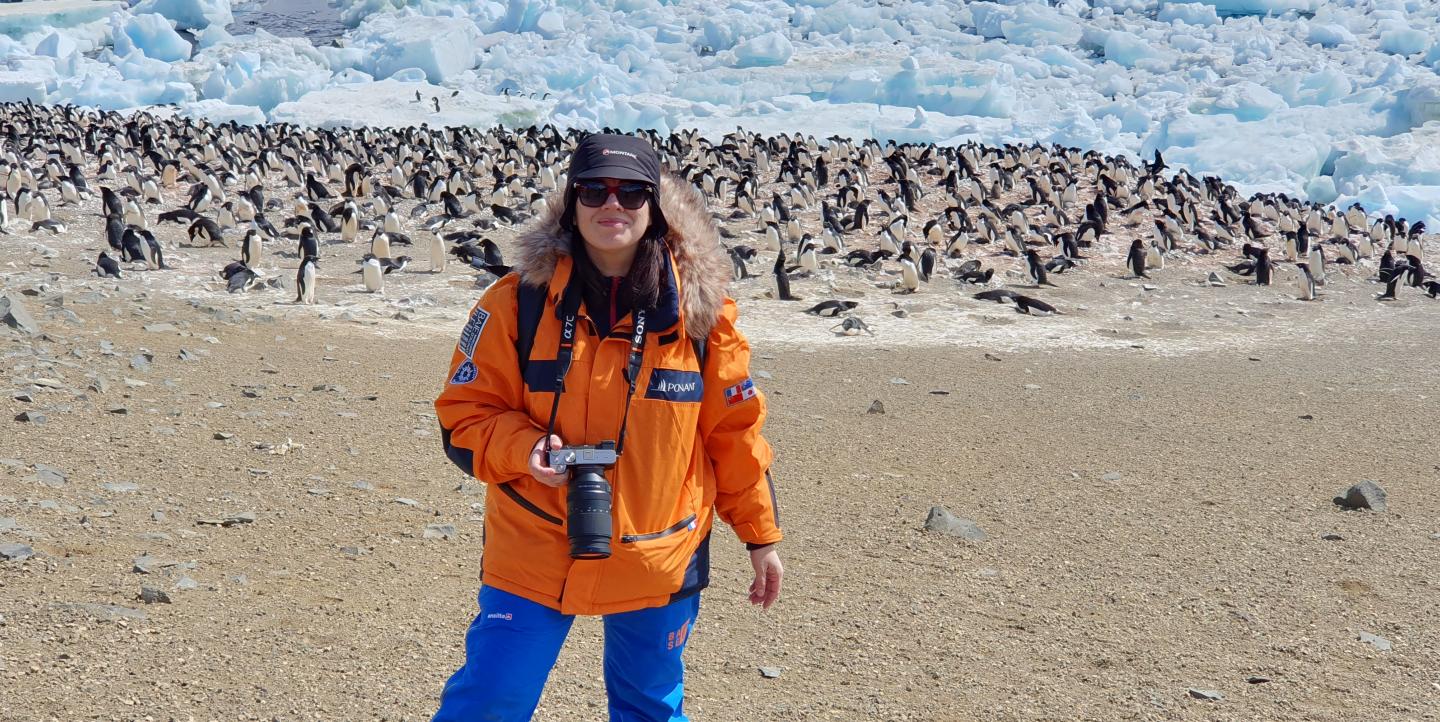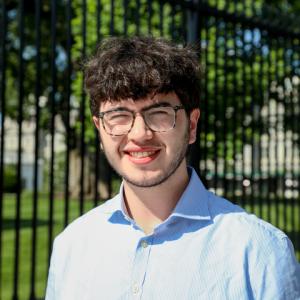Chilean science journalist Nadia Politis has explored the ends of the earth and beyond. From reporting in the bitter cold of the South Pole to the dry deserts of South America, Politis has filled a gap with her science coverage, an underreported beat in Chile.
Throughout her career as a radio host and correspondent for CNN Chile, Politis covered the land, seas and stars — reporting on extremely large telescopes, documenting Antarctic expeditions and more. She has interrogated the role of women in science, too, most notably through her 2021 book, Antarctica: Tales of women explorers in the heart of the planet, about women explorers and scientists in Antarctica and the challenges they have faced.
“Gender issues in Antarctic science have been one of the important pillars of my career as a science journalist. All of these women, their stories and passion for Antarctica, have inspired me to continue telling stories and reaching different audiences with Antarctica,” Politis said.
After a successful reporting career building connections between scientists and the Chilean public, Politis today is passing knowledge to the next generation of science journalists as a professor at Andrés Bello National University, as communications director at the Antarctic research nonprofit BASE Millennium Institute, and as vice president of the Chilean Association of Journalists and Professionals for Science Communication (ACHIPEC).
Meet Nadia Politis, IJNet’s journalist of the month for November:
What sparked your interest in science journalism?
My arrival to journalism was built little by little. When I was in school, I remember that I waited with enthusiasm every weekend for the arrival of newspaper subscriptions to my house. My father received two different newspapers — El Mercurio and La Tercera — and both included travel magazines and in-depth reports. I still remember the enthusiasm of reading about fascinating places and people. At that time, there was a magazine called Tendencias which was my favorite publication. News of astronomy, nature and psychology inspired me with every issue.
I think the culminating point was my studies at the Universidad de Santiago. There I discovered my passion for radio, photojournalism,and [especially] science journalism thanks to my mentor, Professor Sergio Prenafeta Jenkin, [one] of the founders of ACHIPEC of which I am [now] vice president.
How did you get into science journalism?
I've been connected to science journalism since my university education — my thesis was on nuclear energy. [Ever since,] I have tried to link science communication in every work experience I have had.
At the beginning of my career, I worked at BíoBío radio covering politics, but I was also involved in energy and environmental issues. At that time in Chile, there were still no science sections, so making the topic visible was always a challenge. Later, working in the international area of CNN Chile, I also covered astronomy; the ALMA radio telescope had not yet been built in the north of Chile, and getting editors to accept my proposals for topics was difficult, but little by little I was gaining air space.
A period later, thanks to the invitation of an editor of [CNN Chile], we started an online program called "Science in First Person" that invited scientists to the studio to talk about their research from their personal point of view, and also integrated comments from users connected live. At that time, it was an innovative proposal, but it ended when I left the media to do science communication from universities and research centers.
Today, I develop science journalism [through] science diplomacy, social media, audiovisual [multimedia], media management and training of future science journalists [in] our internship program.
When did you go to Antarctica, and what was it like?
In 2018, I traveled from the city where I live, Santiago de Chile, to the city where the Chilean Antarctic campaigns begin, Punta Arenas, thanks to a grant I obtained from the Chilean Antarctic Institute (INACH) to cover an Antarctic scientific expedition. [The expedition] sought to cross the Antarctic Polar Circle in a [military] ship that was not an icebreaker. This challenge was very particular, because the concentration of ice in the Pacific Ocean could interrupt or even cancel the expedition. That experience was incredible, and I could say that it changed my life. Not only did I learn about the scientific work that Chile does in Antarctica, but I also learned about the collaboration between INACH and the [Chilean] Armed Forces, and I approached a topic that was little explored at that time: the high presence of women in Antarctic science.

Upon my return to Chile, I tried to transmit my experience and wrote a book, "Antarctica: Tales of women explorers in the heart of the planet." The book gathered more than 50 interviews with women from science, education, art, music, the armed forces and also journalism and [told] their experience with Antarctica, as well as the challenges we face as a planet from climate change.
I think [the book] was a contribution to a discussion that is very present today: the visibility of women in Antarctica, gender gaps, sexual harassment, and the role that we, women journalists, can contribute to the construction of narratives.
What stories are you most proud of?
My work at the BASE Millennium Institute has allowed me to meet incredible scientific teams, and young researchers who are very motivated by outreach. During my journey I have received the support of incredible Antarctic women scientists.
In particular, [I was inspired by] the series of interviews conducted with scientist Wanda Quilhot, a Chilean biologist renowned for her research work in [the study of lichens]. She was one of the first scientists to travel to Antarctica and I fondly remember our telephone conversations during the pandemic.
How has IJNet helped your career?
In my personal experience, building collaborations with other journalists' networks, such as IJNet, has been fundamental. I thank [IJNet Spanish Forum Community Manager] Desirée Esquivel for trusting in my work, and I hope that many more journalists in Latin America will join this network.
What advice do you have for journalists covering science or working as international correspondents?
Working with other colleagues taught me a lot about professional solidarity, empathy, resilience, discipline and the importance of delegating tasks. Collaboration, [association] and strengthening of networks is fundamental in today's international journalism.
[We must] also rethink our profiles and identify in which area we want to specialize. Add new tools, study, integrate into journalists' associations, give [each other] opportunities and work with other generations of colleagues — those who have been there longer and those just starting out — and never stop listening.
Main photo credit: Peter Fretwell.


